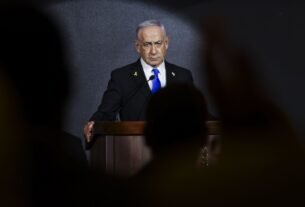Belgium announced on Tuesday it plans to recognise a Palestinian state under certain conditions, and slap sanctions on Israel over its conduct in Gaza.
Recognition is “not symbolic” but “conditional” on Hamas releasing all remaining hostages taken on 7 October 2023 and giving up any role in governing Palestinian territory, Foreign Minister Maxime Prévot said in a statement.
The move is expected to be formalised at this month’s United Nations General Assembly in New York.
The decision caps weeks of bitter infighting within Belgium’s fragile five-way coalition led by right-wing Prime Minister Bart de Wever.
One Monday, Prévot’s centrist Les Engagés threatened to block government business unless the cabinet took a tougher line on Israel.
Belgium is set to impose what Prévot called “firm sanctions” on the Israeli government. These would include a ban on imports from illegal Israeli settlements, tighter scrutiny of public procurement with Israeli firms and curbs on consular assistance for Belgian citizens living in those settlements.
Two hard-right Israeli ministers, along with several “violent settlers” and Hamas chiefs, will be declared persona non grata.
“It is not a question of sanctioning the Israeli people, but of ensuring that its government respects international and humanitarian law and taking action to try to change the situation on the ground,” Prévot said.
The announcement follows French President Emmanuel Macron’s pledge in July that Paris would recognise Palestine at September’s UN gathering. A dozen or so other European governments have signalled similar intentions.
Israel’s Prime Minister Benjamin Netanyahu warned that those moves would fuel antisemitism, “reward Hamas’s monstrous terrorism and punish its victims”.
A statement sent to reporters confirmed that Belgium will push for EU-wide measures targeting Hamas, while working with Jewish groups at home to combat antisemitism.
It also supported suspending the EU’s trade agreement with Israel, along with “other possible measures, such as the suspension of MoUs and technical cooperation working groups.”
Brussels has proposed limiting research and development ties, as part of a range of sanctions options, after ruling that Israel breached human-rights obligations.
“Avenues related to the activities of the European Investment Fund (EIF) and the European Investment Bank (EIB), or even Europol, with Israel, must also be explored and give rise to concrete proposals,” it added.
But the options, drawn up by the EU’s diplomatic service, have stalled amid deep divisions among the EU27, which resurfaced this weekend when foreign ministers met informally in Copenhagen.
The issue is likely to be discussed when they meet next as part of their regular format of talks at the UN on 22 September.
(mm)





